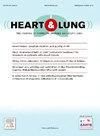睡眠时间与心血管疾病的因果关系:一项双样本孟德尔随机化研究
IF 2.6
4区 医学
Q2 CARDIAC & CARDIOVASCULAR SYSTEMS
引用次数: 0
摘要
最近越来越多的研究表明睡眠时间与心血管疾病(CVD)之间存在关系。然而,两者之间的相关性尚未得到研究。目的探讨睡眠时间与心血管疾病的相关性。方法:本研究基于全基因组关联研究(GWAS)的汇总数据,涉及不同种族的睡眠时间和12种主要心血管疾病。我们使用两样本孟德尔随机化(MR),一种专门用于分析相关性的方法,来调查睡眠时间是否直接影响心血管疾病的发生风险。我们的主要分析使用逆方差加权(IVW)方法来检查睡眠时间对多种心血管疾病的影响。此外,我们采用了最大似然、MR-Egger回归、加权中位数和加权模式方法来确保我们发现的稳健性。结果本研究发现,睡眠过度与三种心血管疾病(瓣膜性心脏病、心肌梗死和心力衰竭)呈显著负相关(P <;0.05)。与其余9种心血管疾病无显著相关性(P >;0.05)。此外,我们发现睡眠不足与四种心血管疾病(非缺血性心肌病、心律失常、瓣膜性心脏病和心房颤动)呈正相关(P <;0.05),但与其余8种心血管疾病无关(P >;0.05)。结论睡眠过多与若干心血管疾病呈负相关,而睡眠不足与其他心血管疾病呈正相关,提示睡眠不足可能增加某些心血管疾病的风险。本文章由计算机程序翻译,如有差异,请以英文原文为准。
Sleep duration and cardiovascular disease causal association: A two-sample Mendelian randomization study
Background
An increasing number of studies have recently suggested a relationship between sleep duration and cardiovascular disease (CVD). However, a correlation between the two has not been studied.
Objective
The aim of this study was to investigate a correlation between sleep duration and CVD.
Methods
This study is based on summary data from genome-wide association studies (GWAS), across various races, regarding sleep duration and 12 major cardiovascular diseases. We utilized two-sample Mendelian randomization (MR), a method specifically designed to analyze correlation, to investigate whether sleep duration directly affects risk of developing CVD. Our primary analysis used the inverse variance weighting (IVW) method to examine the effect of sleep duration on multiple cardiovascular conditions. Additionally, we employed maximum likelihood, MR-Egger regression, weighted median, and weighted mode methods to ensure the robustness of our findings.
Results
This study revealed a correlation between over-sleeping and three cardiovascular conditions (valvular heart disease, myocardial infarction, and heart failure) with significant negative correlations (P < 0.05). No significant correlation was found with the remaining nine cardiovascular conditions (P > 0.05). Furthermore, we found that under-sleeping had a correlation with four cardiovascular conditions (non-ischemic cardiomyopathy, cardiac arrhythmias, valvular heart disease, and atrial fibrillation) with significant positive correlations (P < 0.05) butnot with the remaining eight cardiovascular conditions (P > 0.05).
Conclusion
Over-sleeping was negatively correlated with several cardiovascular diseases, whereas under-sleeping was positively correlated with others, suggesting that lack of sleep may increase the risk of certain cardiovascular conditions.
求助全文
通过发布文献求助,成功后即可免费获取论文全文。
去求助
来源期刊

Heart & Lung
医学-呼吸系统
CiteScore
4.60
自引率
3.60%
发文量
184
审稿时长
35 days
期刊介绍:
Heart & Lung: The Journal of Cardiopulmonary and Acute Care, the official publication of The American Association of Heart Failure Nurses, presents original, peer-reviewed articles on techniques, advances, investigations, and observations related to the care of patients with acute and critical illness and patients with chronic cardiac or pulmonary disorders.
The Journal''s acute care articles focus on the care of hospitalized patients, including those in the critical and acute care settings. Because most patients who are hospitalized in acute and critical care settings have chronic conditions, we are also interested in the chronically critically ill, the care of patients with chronic cardiopulmonary disorders, their rehabilitation, and disease prevention. The Journal''s heart failure articles focus on all aspects of the care of patients with this condition. Manuscripts that are relevant to populations across the human lifespan are welcome.
 求助内容:
求助内容: 应助结果提醒方式:
应助结果提醒方式:


